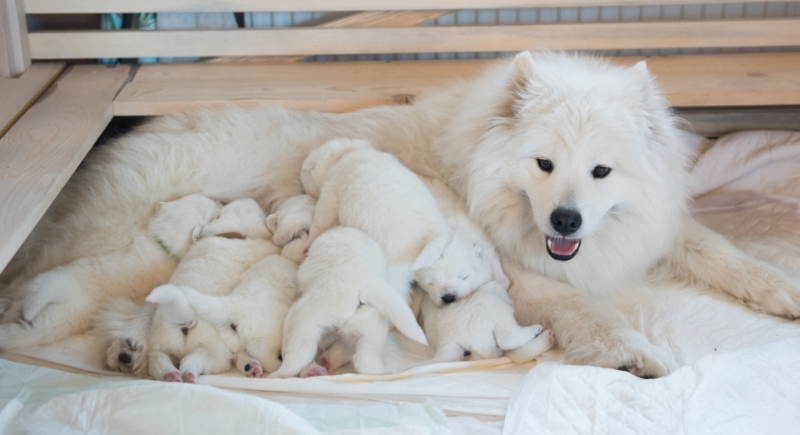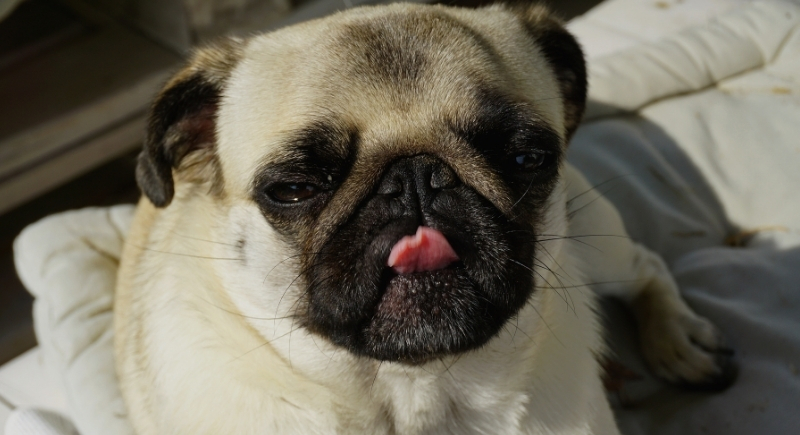So This Is Why Dogs Eat Poop (Gross!)
It is never a pleasant moment when you see your dog doing something you thought only happened in the wild. Watching them eat poop feels confusing and a bit alarming, but it is more common than people expect. The behavior, known as coprophagia, can come from instinct, health issues, stress, or simple habit.
Some dogs do it because they are hungry or missing nutrients. Others pick it up while trying to tidy their space, ease anxiety, or get a reaction from you. The reasons vary, and not all of them signal a serious problem. Still, it is worth paying attention, because understanding what is driving it is the first step toward stopping it.
Instinct Can Explain Early or Ongoing Poop-Eating

Image via Getty Images/infinityyy
Puppies observe their mothers early on. Nursing dogs clean their den by consuming their pups’ waste, which keeps the space free of bacteria and parasites. This pattern starts naturally and usually ends as the pups grow. Still, it can leave a lasting impression. Puppies may mimic what they see and repeat it later. Even adult dogs sometimes follow inherited habits.
Wolves handled waste for similar reasons. Removing feces lowered the risk of parasites in the pack, and that instinct may still carry over in household dogs. Stool that is less than two days old tends to be more tempting, which fits with research showing that dogs often prefer fresher droppings.
The evolutionary link helps explain the behavior, but it still needs to be addressed. Once a dog develops the habit, it can turn into a routine. Gentle training, redirection, and managing the environment usually help. Loud reactions or scolding do not. For some dogs, the extra attention only encourages the behavior.
Medical Conditions Can Trigger Sudden Behavior Changes

Image via Pixabay/Nowaja
In some cases, if a dog that begins eating poop after a long period without doing so may have a health issue. Conditions that increase appetite, such as diabetes, Cushing’s disease, or thyroid problems, can lead dogs to seek out stool. Certain medications, especially steroids, also make dogs hungrier than usual. This can drive them toward whatever’s available.
Digestive disorders are another concern. If the body isn’t absorbing nutrients properly, the dog may attempt to “recover” them by eating stool. Examples include exocrine pancreatic insufficiency or small intestinal bacterial overgrowth. These affect digestion and nutrient use, even when the dog eats enough.
Internal parasites can have a similar effect by stealing nutrients before they’re absorbed. A veterinary visit becomes necessary when a pup shows new interest in feces and has symptoms like weight loss, lethargy, vomiting, or diarrhea. Diagnostic tests will help confirm or rule out conditions that could be driving the habit. Medical intervention, paired with behavior management, often improves outcomes.
Management and Supplements Can Reduce Temptation
Poop-eating often continues when dogs have easy access. Picking up the stool quickly lowers the chance of repeat behavior. Blocking access to litter boxes, using leashes outdoors, and keeping the yard clean help reduce opportunities. For persistent cases, dietary changes may also support response changes.
Digestive enzyme supplements and probiotics can help dogs process food more effectively, especially if absorption has been a problem. These don’t change the taste of stool, but they may reduce the need to seek it out. For taste-driven cases, deterrent chews are available. These supplements alter the taste of the stool to make it unappealing. They work best when every canine in the household receives them.